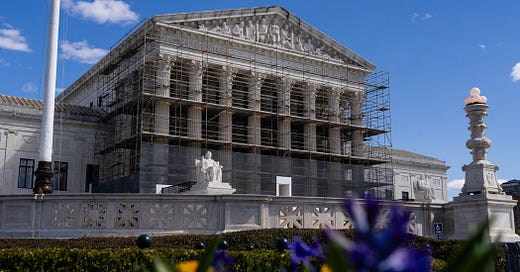In God’s Name, with Public Funds?
The Supreme Court may open the door to America’s first religious charter school — and to the crumbling of church-state boundaries.
Hey Small Biters,
This week, the U.S. Supreme Court heard oral arguments that could redefine how religion and public education intertwine. At the heart of the case: St. Isidore of Seville, a proposed Catholic virtual charter school in Oklahoma. If approved, it would become the first taxpayer-funded religious charter school in the country.
That phrase alone — “public religious school” — ought to give pause. The Oklahoma Supreme Court previously ruled against the school, calling it a direct violation of both the state and U.S. Constitutions. But now, with a conservative majority on the U.S. Supreme Court, the outcome could swing — and swing hard.
This is more than a local debate. It’s part of a broader effort by Christian nationalists and conservative legal networks to blur the lines between church and state — and to reframe “religious liberty” as a right to public funding for religious activity.
The school’s supporters argue that St. Isidore isn’t a state institution — it’s simply a school choosing to participate in a public program. Denying it access to public charter status, they claim, is discrimination against faith itself. “Religious institutions,” Justice Brett Kavanaugh noted, “should not be treated as second class.”
But opponents — including the ACLU, Oklahoma’s own Republican attorney general, and the state Supreme Court — warn of dangerous precedent. If the state must fund religious education, what happens when schools start teaching creationism, excluding LGBTQ+ students, or enforcing sectarian discipline codes?
Keep reading with a 7-day free trial
Subscribe to Small Bites to keep reading this post and get 7 days of free access to the full post archives.





